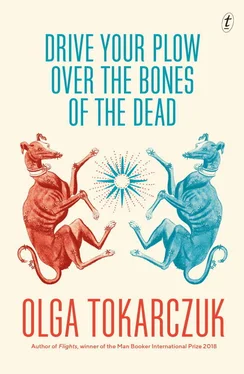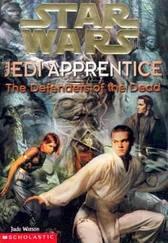‘No!’ I exclaimed as a first reaction, but then I thought that whoever had given him that strange, traditional name had hit the bullseye. Świętopełk. It looked as if this confession brought him relief. He put a strawberry in his mouth and said: ‘My father called me that to spite my mother.’
His father was a mining engineer. After the war he’d been given the task of revitalising a formerly German coalmine in Waldenburg, which – now that this region was part of Poland – had been renamed Wałbrzych. He was to work alongside an older man, the German technical manager of the mine, who wasn’t allowed to leave the country until the machines started working. At the time, the city was deserted; the Germans had left, and every day the trains brought new workers transferred from what had been eastern Poland, but they all settled in the same place, in one district only, as if the enormity of the empty city frightened them. The German manager did his best to perform his duty as quickly as possible, so he could finally leave for Swabia or Hesse or wherever. So he would invite Oddball’s father home for dinner, and soon the engineer had taken a fancy to the manager’s attractive daughter. In fact it was the best possible solution – for the young people to marry. Both for the mine and for the manager, as well as for the so-called people’s power, which now had the daughter of a German as a sort of hostage. But their marriage was troubled from the start. Oddball’s father spent a lot of time at work, often going to the bottom of the pit, because it was a difficult and demanding mine, where the anthracite was extracted from immense depths. Finally he came to feel better under the ground than above it, hard as that is to imagine. Once everything had gone to plan and the mine was up and running, their first child was born. The little girl was given the name Żywia, a traditional Slavic name, as a way of celebrating the return of the Western Territories to the Motherland. But gradually it became clear that the husband and wife simply disliked each other intensely. Świerszczyński began to use a separate entrance to the house and converted the basement area to provide himself with his own study and bedroom. At this point their son was born, in other words Oddball, perhaps the fruit of their final, farewell sexual intercourse. And then, knowing that his German wife had trouble pronouncing her own new surname, driven by some vengeful emotion that’s quite incomprehensible nowadays, the engineer gave his son the old-fashioned Slavic name Świętopełk. The mother, who couldn’t pronounce her own children’s names, died as soon as she had seen them through secondary school. Meanwhile, the father lost his mind completely and spent the rest of his life underground, in the basement, continually extending his network of rooms and corridors underneath the villa.
‘I must have inherited my eccentricities from my father,’ Oddball concluded.
I was truly moved by his story, but also by the fact that never before (or since) had I heard him make such a long speech. I’d love to have known about further episodes in his life – for instance, I was curious to learn who Black Coat’s mother was – but now he seemed sad and exhausted. And we also found we had quite unconsciously eaten all the strawberries.
Now that he had revealed his real name to me, I couldn’t refuse to go to the meeting with him, so that afternoon we went. The Tools that I kept in the back of the Samurai rattled as drove along.
‘What are you carrying about in this car?’ asked Świętopełk. ‘What on earth do you need all those things for? A camping cooler? A petrol can? Shovels?’
Surely he knew that if you live on your own in the mountains you have to be self-sufficient?
By the time we arrived everyone was seated at the table, drinking strong coffee brewed in the glass. To my surprise I noticed that the Penny Buns Mushroom Pickers’ Society had a large membership, including people whom I knew well from the shops and kiosks, and from the street, and some whom I hardly recognised. So this was the one thing capable of bringing people together – mushroom picking. The conversation was dominated from the start by two men of the genus Woodcock who, like those noisy birds, outshouted each other in an effort to recount their rather unexciting adventures, which they both called ‘anecdotes’. Several other people endeavoured to silence them, but to no effect. As I learned from the woman sitting to my left, the ball was to be held at the firehouse, which was situated near the Fox farm, not far from Ox Heart Corner, but some of the members were protesting against that plan.
‘It won’t be much fun having a party near the spot where a friend of ours died,’ said the man chairing the meeting, whom I was pleased to recognise as the school’s history teacher. I would never have guessed he was keen on mushrooms too.
‘That’s one thing,’ said the woman sitting opposite me, who ran a newspaper kiosk and often kept magazines for me. ‘Apart from that, it could still be dangerous around there. Some of the ladies and gentlemen smoke, for instance, and will want to go outside into the fresh air…’
‘I should mention that smoking is not allowed inside the firehouse, whereas we can only drink alcohol indoors, according to the permission we’ve obtained. Otherwise it’ll be classed as public consumption and it’ll be illegal.’
A murmur ran through the assembled company.
‘What’s that?’ called a man in a khaki waistcoat. ‘I, for one, like to smoke when I drink. And vice versa. So what am I to do?’
The history teacher chairing the meeting was perplexed, and in the confusion that followed, everyone started giving advice on how to resolve the situation.
‘You can stand in the doorway, with one hand holding your glass inside, and the other holding your cigarette outside,’ someone shouted from the back of the room.
‘The smoke will get inside anyway…’
‘There’s a roofed terrace there. Does the porch count as inside, or outside?’ someone else asked sensibly.
The chairman rapped on the table, and at that very moment a late arrival entered the room – it was ‘the President’, apparently an honorary member of the Society. Everyone fell silent. The President was one of those people who are used to being the centre of attention. From his early youth he had been on the board of something or other: the school student union, the Boy Scouts Service for People’s Poland, the local council, the quarry company – supervisory bodies of every possible kind. Even though he had served as a member of parliament for one term, everyone called him the President. In the habit of running the show, he solved the problem immediately.
‘In truth, we can have a buffet on the porch, and we’ll declare the terrace the buffet zone,’ he joked genially, though few people laughed at his pun.
Admittedly, he was a good-looking man, though disfigured by an ample belly. He was self-confident, charming, and his Jovian physique inspired confidence. Oh yes, this man was born to rule. And he didn’t know how to do anything else.
The smug President delivered a short speech about how life must go on, even after the greatest tragedies. He larded it with little jokes, and kept appealing to ‘our lovely ladies’. He had the rather common habit of repeating a favourite phrase every now and then. In his case it was ‘in truth’.
I had my Theory about interjections of this kind: every single Person has their own expression which he or she overuses. Or uses incorrectly. These words or phrases are the key to their intellect. Mr ‘Apparently’, Mr ‘Generally’, Mrs ‘Probably’, Mr ‘Fucking’, Mrs ‘Don’t You Think?’, Mr ‘As If’. The President was Mr ‘In Truth’. Of course there are entire fashions for some words, just like the ones that for some crazy reason suddenly make everyone start going about in identical shoes or clothes – people just as suddenly start using one particular word or phrase. Recently the word ‘generally’ was fashionable, but now ‘actually’ is out in front.
Читать дальше












